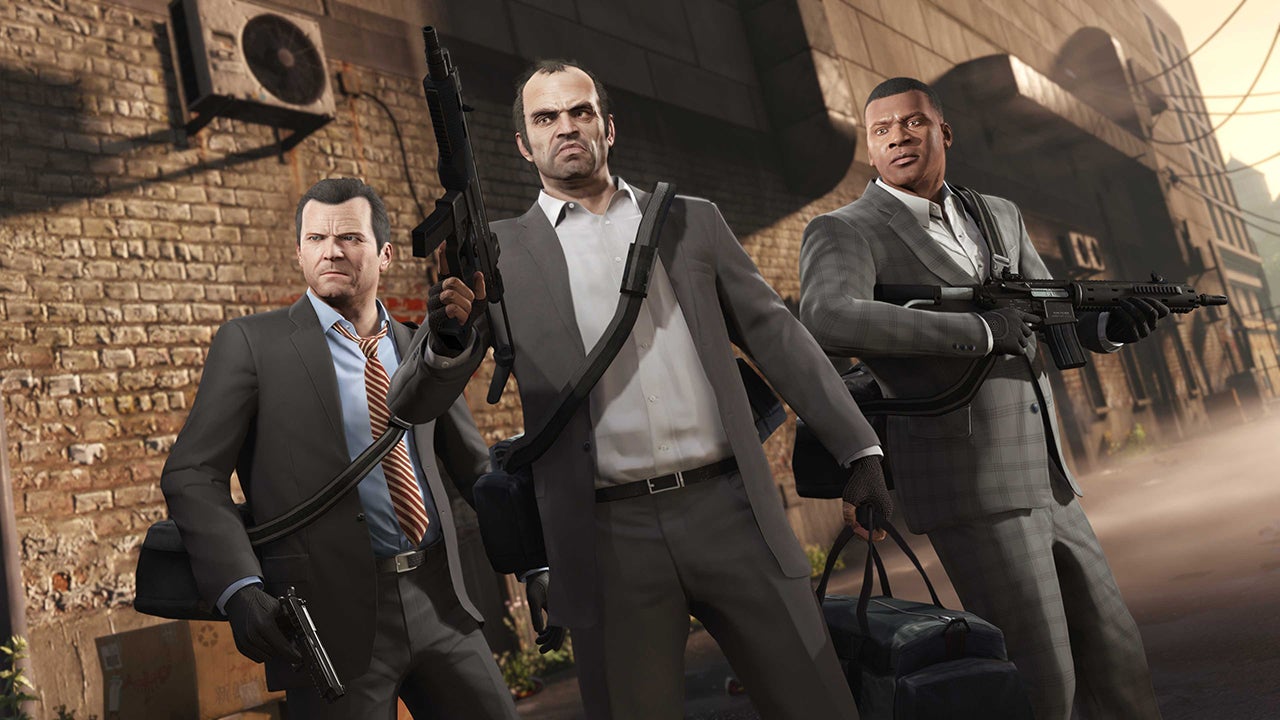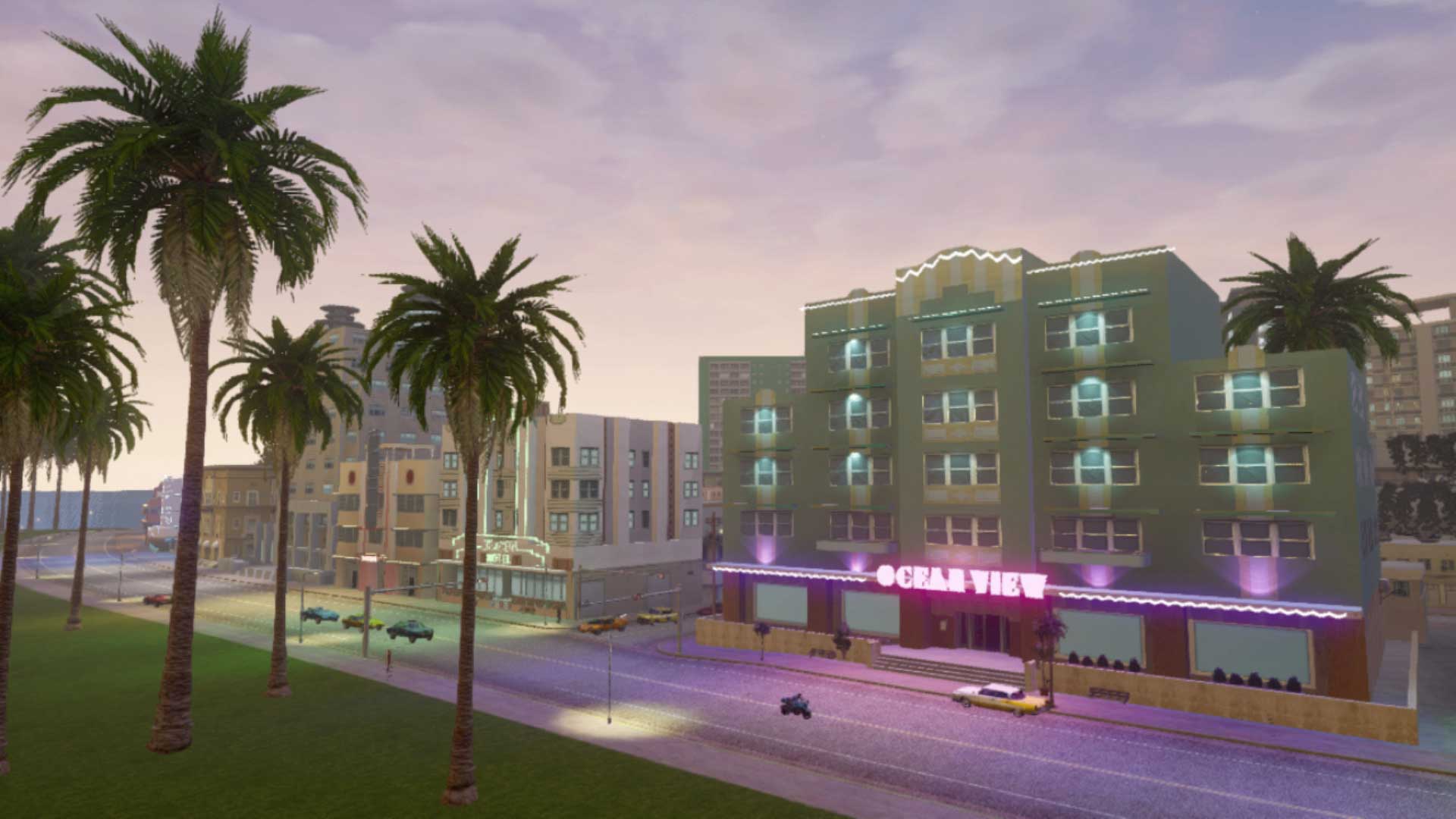To my knowledge, Matt Damon is not involved, and Rockstar’s brass has not dispatched Clive Owen to have a gun-point philosophical chat with the person responsible for this leak, much as it perhaps would like to. It has, however, teamed with the FBI, so maybe I wasn’t that far off. Either way, the response will be swift and all-encompassing, like what happened with the closest thing I can think of to this, the Half-Life 2 leak. (And we all know what happened there.) The reasons for such a response are obvious. There is a gigantic financial element in play here. There are security concerns regarding source code and other exposures which could well derail an entire project. And then there’s reputational damage, which has already occurred. Seconds after the leak, the internet was awash with people disappointed with how it looked. That it looked like shit. That if this was what it looks like, it would be a huge disappointment and, just quietly, what have the (lazy?) devs been up to all this time? These were some of the more lucid takes: at least the words made sense in order. Others seemed to just be barked out into the universe with no consideration for sense or sanity, as opposed to reality as they were. So what is that reality, then? Mainly, it’s that I’m amazed any video game gets released, ever, and that if you could see what all your favourite games looked like just three months before release you would insist some sort of arcane magic had been performed to get them finished. I know this because since 2007 I’ve worked either directly on games themselves, on high-profile or visible franchises/brands (including Battlefield, Harry Potter, Burnout, Half-Life, Total War, and others) as a writer. In that role, I’ve seen them in pre-release state, mainly while a very nervous PR person pleads with you to remember It Is Not Finished. In one part of my current role, I have advised and consulted on mechanics and modes for high-profile releases. No matter my job in the industry over those 15 years, one thing remains the same: making games is hard, and it either all comes together right at the end, or it doesn’t come together. The margin between success and failure, especially for so-called triple-A, is vanishingly small. As an example, on one well-received shooter which you may very well have played, the guns didn’t work until about two months before release. The guns. On another shooter, the weapons had no crosshair until very deep into dev, so team members would have to stick a tiny bit of blu-tac in the middle of the screen to aim the gun. This was a port of a game which had been out for years, I should add. On one admirably ambitious and totally overscoped open-world racing game which people are desperate for a sequel to (and I will never play ever again), even getting it to run at all just a few short months ahead of its E3 playable demo – which in and of itself caused many, many meltdowns – was a challenge. Particularly on PS3, which at that point was like trying to program advanced graphics onto a kazoo. When, eventually, a teammate and I broke the E3 demo, which caused the whole PS3 itself to launch into a tizz, the sound of anguished wailing would have made Michael Corleone blush. There are many, many more stories like this. I once got a battlefield promotion a few months out from launch on an ambitious turn-based strategy game, when I arrived for the night shift (people were on it 24 hours a day trying to make the release date) and my boss said ‘you’ve been promoted. I quit’ and simply walked out of the office. The reason: the much-vaunted naval battles, the key selling point, simply did not work. Every morning, at the end of said shift, I would have to write the handover reports (to the incoming test teams as well as development and production teams), telling them as diplomatically as I could that, yes, we regret to inform you it is Still Totally Fucked. Guess what? Each of those games came out and, to a greater or lesser degree, bore little resemblance to what they looked like literally weeks before. (Some games, particularly yearly sports titles, can change dramatically even between review stage and release.) Some of them scored brilliantly, most of them you’ve played or heard of, and at least one of them caused a real problem on review day. One August an important magazine had given the game an 8. A developer on the project said ‘I would have given it a 10’. Someone replied with ‘that’s why the people who make the games don’t review them.’ Cue the saloon bar fight music. Thankfully it calmed down before it got out of control. But this sort of emotional response was not necessarily out of the blue, either, and this is the other part of the GTA 6 (or in fact, any game) leak which can have drastic and unseen consequences: these things aren’t made by robots, they’re made by an army of people whose motivations for it going well are varied, but whose commitment and sacrifices are generally not. It is exhausting to spend years of your life working on these things, especially when it doesn’t appear to the outside world (or even some bean-counter in the production office) like any progress is being made. So to have 90 videos or so out there is, I imagine, shattering – particularly when people who know nothing about it are giving it the boot. (An example of how online opinion can change in literally seconds: the top secret E3 trailer for a game I was attached to went live at the show with no leaks. It had a long intro, and people in chat were literally saying ‘what the fuck is this lol.’ When it was revealed, the place melted down. It’s that fine a line.) There has, thankfully, been a lot of pushback on social media, with many devs of games – both big and small – showing off just how Metacritic darlings looked in dev. Whether that will be enough for the Rockstar teams, I don’t know. But, in my own opinion, what I saw looked really, really good for where it appears to be in the dev cycle. And with that in mind, imagine how it’s going to look when it releases in 2148.


